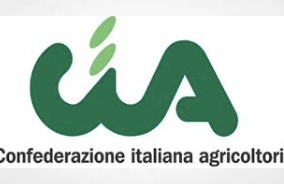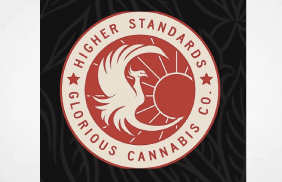EU News
The amendment to the Security Bill banning the cultivation and trade of hemp inflorescences and derivatives would be a violation of EU rules on free competition and movement of goods. At risk a sector with 30 thousand employees and 500 million in turnover, Fini (Cia): “Unacceptable, heavy repercussions on supply chains of excellence”
Brussels – The Italian hemp agro-industrial supply chain is calling Brussels into question. Giorgia Meloni’s government has included in the Security bill —now under consideration in the House—an amendment that would ban the production and trade of hemp inflorescences and derivatives, even with a THC content of less than 0.2 per cent. However, according to several industry associations, there is a risk of violating European rules on free competition and the movement of goods.
The eventual approval of the Ddl Sicurezza would affect not only small retailers of CBD (L sativa hemp with low THC content that does not produce psychotropic effects) but also agro-industrial supply chains of excellence such as cosmetics, floriculture, food supplements, and herbalism. A 500 million annual turnover sector, employing more than 15,000 people throughout Italy, that has grown in recent years despite frequent political attacks. Described by Federcanapa as “a grotesque crackdown,” for CIA-Agricoltori Italiani the move by the Meloni government is “unacceptable” and risks leading to the closure of “thousands of farms in an ever-expanding sector, with significant growth rates and a strong protagonism, especially among young entrepreneurs.” Farmers who have invested in a legal and high value-added culture over the years.” stresses Cia President Cristiano Fini.

The associations Canapa Sativa Italia, Imprenditori Canapa Italiana, Resilienza Italia Onlus and Sardinia Cannabis have called on Brussels to intervene. In a letter delivered to the European Commission, they denounce the possible violation of several EU regulations, including free movement of goods and free competition, and incompatibility with the EU Common Agricultural Policy, and ask the Commission to issue a detailed opinion on the matter.
In essence, the Italian government’s amendment introducing restrictions on the import and trade of hemp inflorescences and their derivatives would be contrary to Articles 34 and 36 of the Treaty on the Functioning of the EU that define the principle of free movement of goods. To support this argument, there is also a ruling by the EU Court of Justice, dated November 19, 2020, which ruled that CBD cannot be considered a narcotic and that its marketing cannot be prohibited if it is legally produced in another EU member state. As if that were not enough, in a ruling in February last year, the Lazio Regional Administrative Court had annulled the interministerial on officinal herbs decree of May 18, 2022, which had placed cannabis sativa under a special regime, restricting agricultural cultivation and allowing only seeds and derivatives to be marketed. Precisely because these restrictions were contrary to Articles 34 and 36 of the TFUE.
Italian farmers in the supply chain suggest that, if approved, the amendment would also violate Article 101 of TFUE, effectively restricting free market access. They also denounce the failure to comply with the principle of proportionality: “The introduction of such a broad ban does not appear proportionate to the objective of protecting public health, especially in light of scientific evidence that does not indicate significant health risks from the use of hemp inflorescences with a THC content below the legal limits,” the letter further reads.
Companies that process, produce, and market industrial hemp are represented by the European Industrial Hemp Association (EHIA). Reached by Eunews, its administrative director, Lorenza Romanese, poses a “question about the future”: the moment hemp extract is approved by the European Food Safety Authority (EFSA) as a food supplement, “will it circulate throughout Europe except in Italy?” For Romanese, the own goal is twofold: “Today we are going to block sectors that exist, disadvantaging Italian companies in favour of companies from other member countries,” and “In the future, we will again penalize Italy in a sector where it should be a leader, that of food and food complements.”

Romanese goes on to explain that the catch stems from the legal interpretation of the Single Convention on Narcotic Drugs of 1961: at the EU level, “three-quarters of the countries” now interpret it in such a way as to allow the development of an industrial sector derived from hemp, while “the most restrictive, Spain and Italy,” see in the international treaty the confirmation that hemp sativa flower is narcotic and therefore not allowed. This is the key to why the Italian government, from its point of view, allows itself to make it a public safety issue and restrict the market.
“The violation per se is not so much related to the legislation, which has not yet been passed, but to the failure to involve European institutions,” the president of CSI, Mattia Cusani, confirms to Eunews. The amendment, included not surprisingly in the Security Bill, was tied by the government to public health protection needs, but it impacts the free movement of goods in the European single market. In these cases,” Cusani explains, “member countries must notify the legislation to the Technical Regulations Information System (TRIS), which deals with coordinating possible adjustments to avoid violations of EU law. To date, no notification from the Italian government on this point is reported on the Tris website.
The president of CSI, who first wanted to address Brussels, is also well aware of the possible domestic remedies: raising a question of constitutional legitimacy or going so far as to disapply the legislation—as has already happened with the 2023 Lazio Regional Administrative Court ruling. But he makes one point clear: “We do not want to be right; we would just like things to be discussed without ideologies and prejudices with the institutions and social partners, to get the wisest decisions possible, because we are talking about the lives and work of more than 15 thousand people.” But often, at campaign time, the decisions are not “the wisest possible.”
English version by the Translation Service of Withub


















